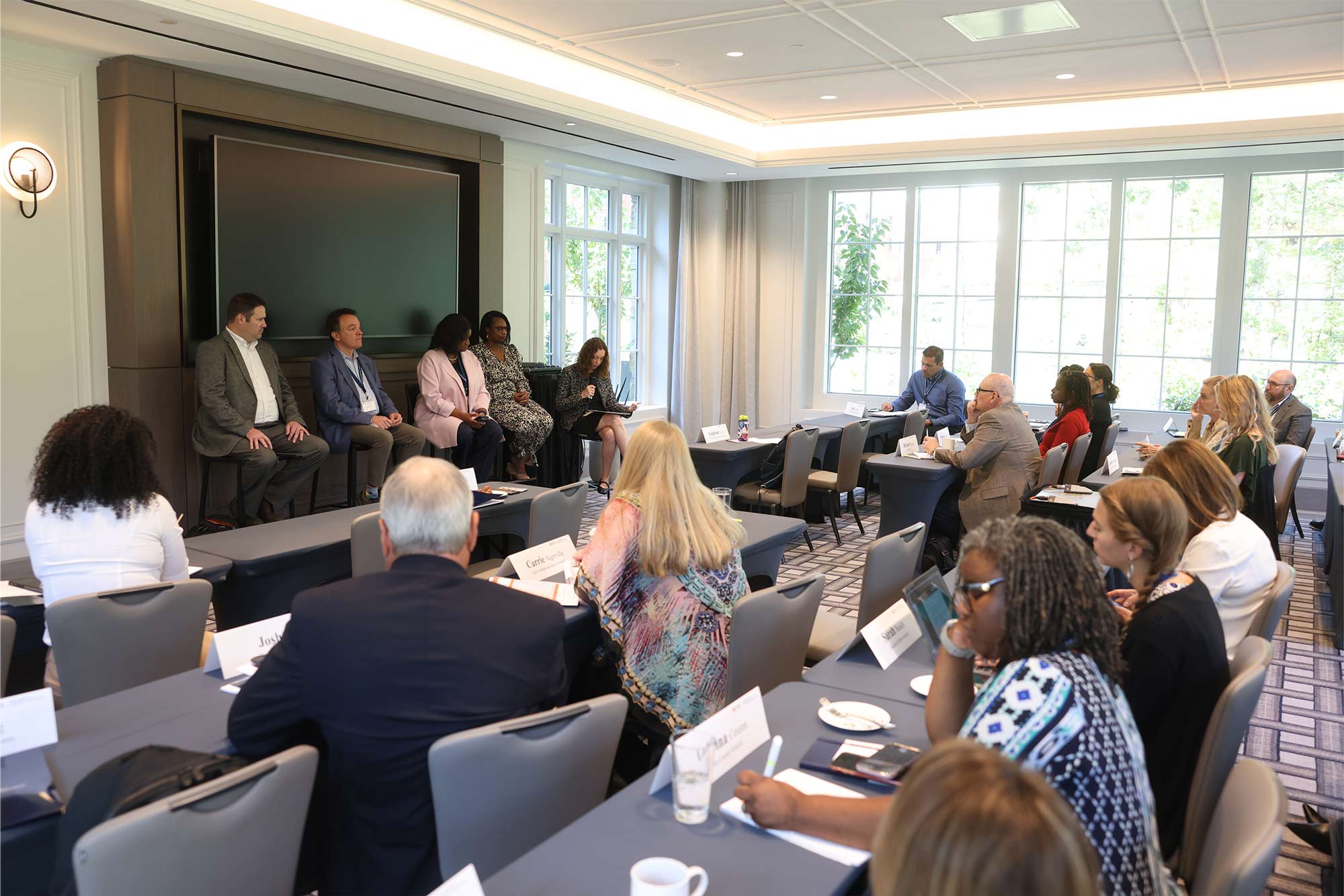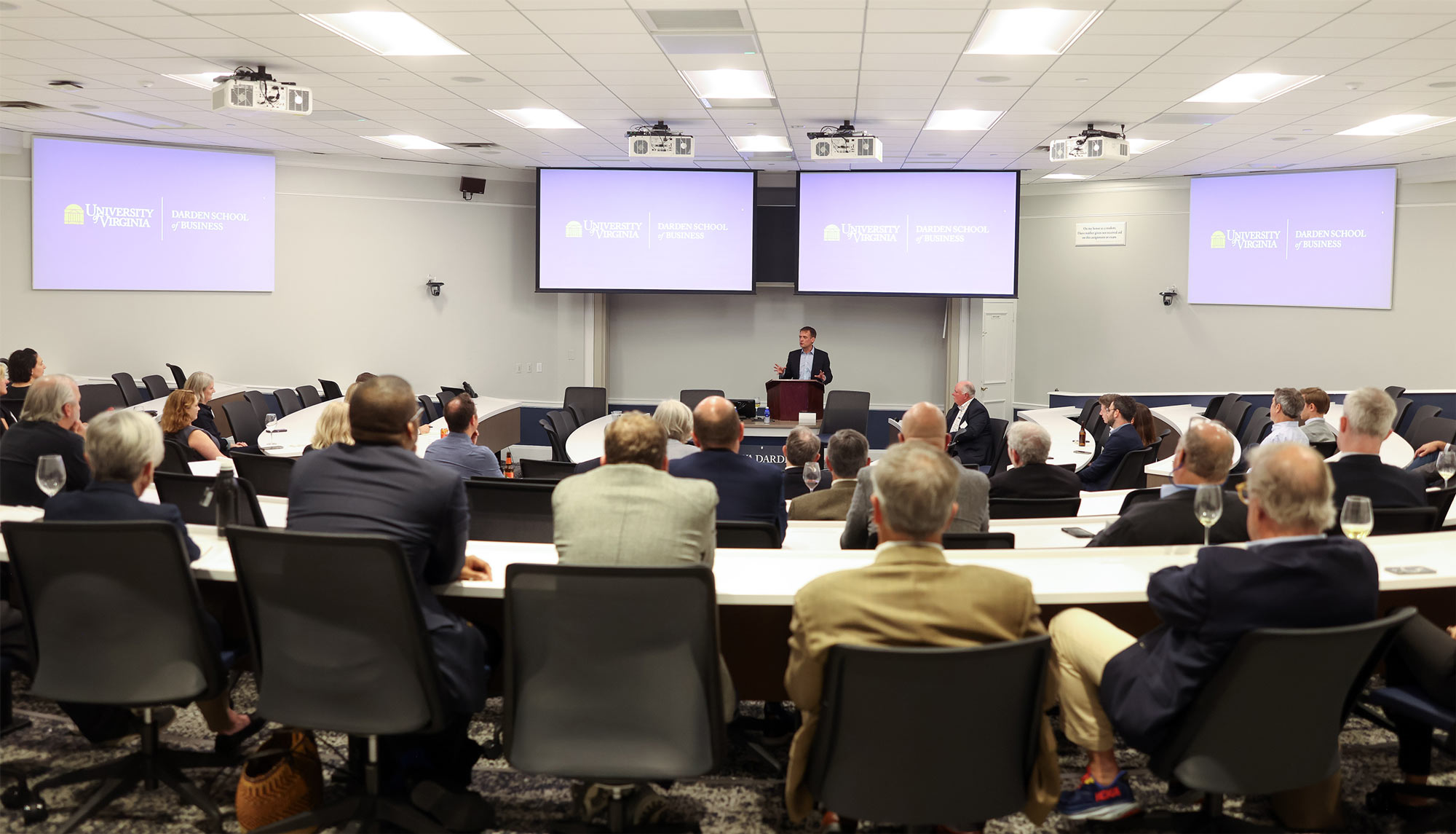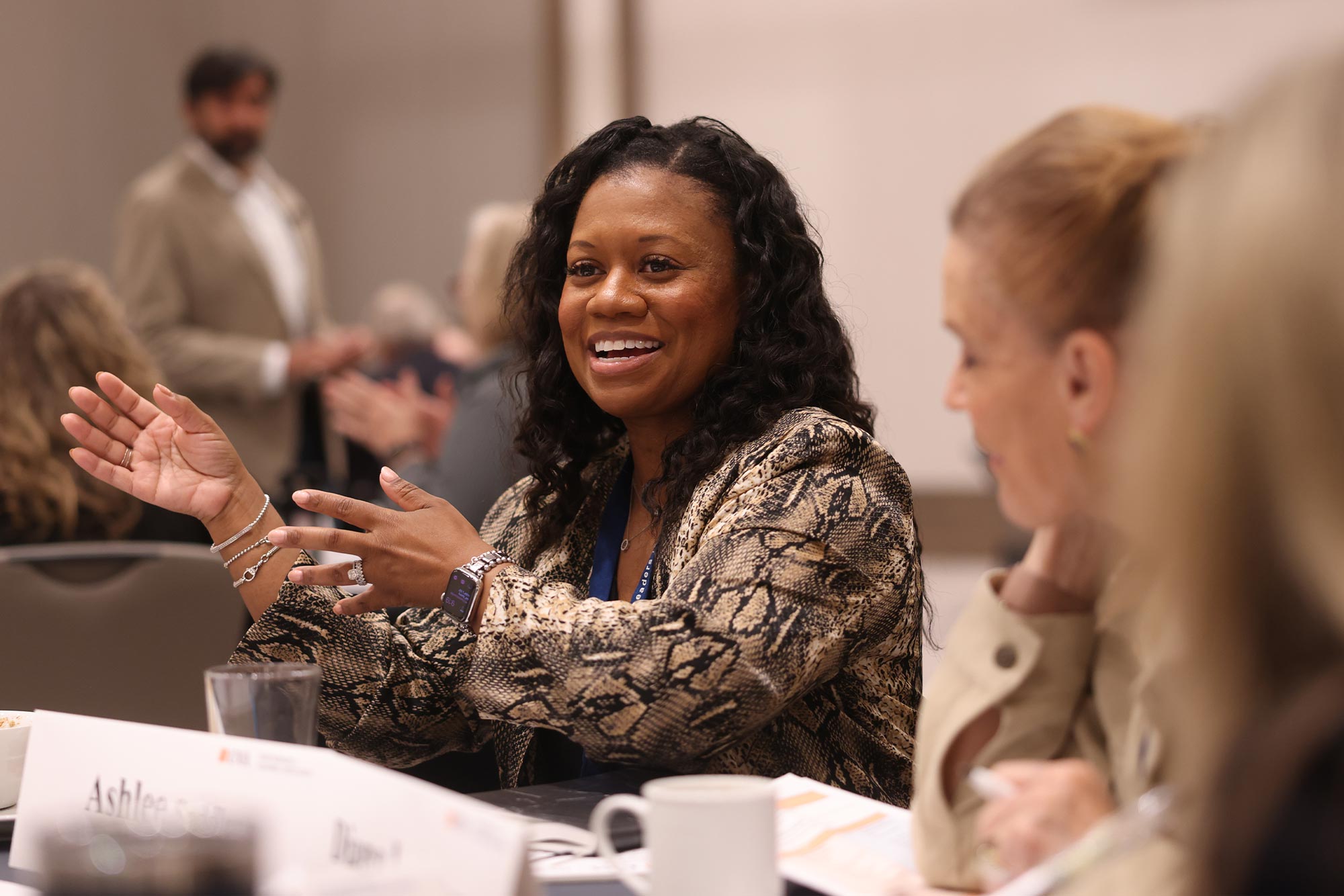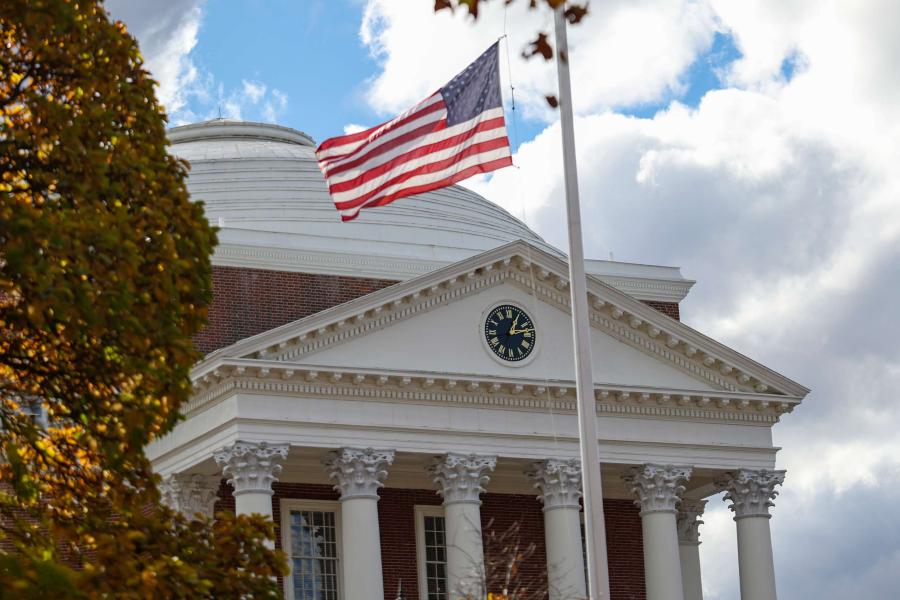They’ve been teaching educators to think like CEOs for two decades, and their services are more important now than ever.
The Partnership for Leaders in Education, a joint venture between the University of Virginia’s Darden School of Business and School of Education and Human Development, has helped transform school systems in more than 130 school districts across the country.
The partnership celebrated its 20th anniversary last week with a two-day forum for educators. In its time, the partnership has helped school districts create successful systemwide change. One example: In Fulton County, Georgia, the number of F-rated schools fell from 29 to three and the number of students from partner high schools who went on to enroll in associate-degree and four-year degree programs more than tripled.
“We were founded to serve you, the leaders doing the most important work imaginable, and to have the opportunity to take our mission to the next level with you to create transformational conditions in which underserved students receive the opportunities they deserve,” partnership executive director William Robinson told the educators at last week’s forum.
Darden professor June West, who helped found the partnership, reflected on the idea that started it all: Brandt Allen, then Darden’s dean of executive education, asked her what one thing she believed would most help the nation’s education system.
“That’s a no-brainer,” she responded. “I would bring superintendents and their top executive teams to the Darden School and put them through the kind of executive education training we do for CEOs.”
The partnership formed that same year, and over the next two decades, the organization’s approach yielded tremendous results for education leaders and their schools. The partnership has served more than 800 schools across 135 districts in 32 states. Its success in substantially raising student achievement has been documented in research journals and state assessment tests.

“Multiple reviews of data in partner school systems shows over half of its partners experience double-digit gains in proficiency in math and language arts on state summative assessments,” Robinson said.
Over the years, the partnership has adjusted its focus to context, collective capacity-building, research and equity, while keeping maintaining its emphasis on leadership skills, data-driven practice and change management.
Many of its partner schools are outperforming pre-pandemic assessments as of this year, contrary to national trends.
While ever-evolving, the organization’s strong set of core ideas remains effective and consistent. “[The partnership] has anchored itself in core tenets that, despite many iterations and changes, are still tools that you can pull and reference that have stood the test of time,” said Denise Watts, superintendent of Savannah Chatham County Schools.
The partnership originally focused on “turnaround” projects, helping underperforming schools and individual principals develop the skills, strategies and tools to drive fast and dramatic change. The partnership later adjusted to focus on developing collective ownership to effect systemic change, rather than developing individual “hero” leaders.
“Collective leadership can be slower, but it’s more powerful and effective,” said Antonio Burt, CEO of KIPP Memphis, an open-enrollment, public, tuition-free, five-school charter school network. “Educators don’t control everything. Solving the literacy challenge requires collective leadership.”
There is more to do, however. In an assessment last year, the National Center for Education Statistics reported sharp declines in reading and mathematics skills among the nation’s 9-year-olds, signaling a significant educational backslide nationwide. While the loss of progress affected all demographics, gaps between higher- and lower-performing students widened even more dramatically.

The trailing impact of the pandemic, combined with shortages in hard-to-staff positions and rising concerns for the mental well-being of students and teachers, means that schools are struggling.
“You have shown us that it is absolutely possible to turn around a school or a number of schools,” former partnership executive director LeAnn Buntrock said. “But I still haven’t seen true district-wide transformation yet. And I absolutely believe that’s possible. … It’s going to take trust, partnerships, political will and education organizations all being willing to work together to make that happen.”
Media Contacts
Associate Director of Content Marketing and Social Media Darden School of Business






